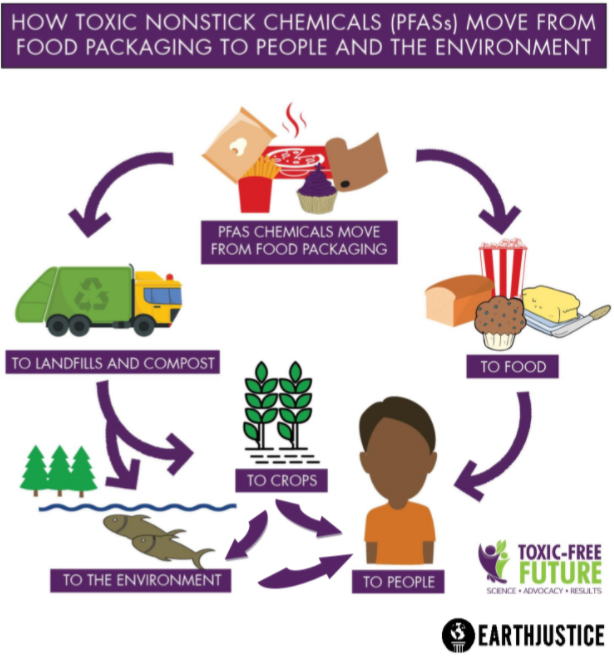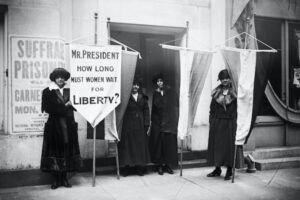Raise a Glass to Clean Water! Raise your Voice for Water Protection!

Did you know that August is National Water Quality Month?
As this month concludes, let us reflect on the history of water protection and take action for a clean water future.
Founded in 2005 by the Environmental Protection Agency and backed by the United Nations, National Water Quality Month was established to promote ways to ensure universal access to safe, clean drinking water. In this newsletter, we share two ways that you can leverage your business voice to protect drinking water for generations to come.
This year marks the 50th Anniversary of the Clean Water Act, and it is now under attack in a case before the Supreme Court: Sackett v. Environmental Protection Agency (EPA). This case will determine how the EPA exercises its regulatory jurisdiction under the Clean Water Act and what land is subject to this regulation. Your business voice is critical in supporting science-based Clean Water Act protections. Learn more and show your support by clicking the link below.
Add your voice to protect the Clean Water Act
If you live or work in New York City or Westchester County, you may be surprised to learn that you get roughly half of your drinking water from the Delaware River Watershed, which originates in the Catskill Mountains. To protect this watershed, NYSBC works with businesses, nonprofit partners, and lawmakers in an ongoing campaign called “Clean Water is Good for Business.” Learn more about this ongoing work and show your support by clicking the link below.
Add Your Voice to Protect NYC/Westchester Drinking Water
Clean Water is Good for Business is a multi-state effort organized by the American Sustainable Business Network (ASBN). The objective is to build a coalition of businesses and business associations to make the economic case for drinking water protections and specifically safeguarding the Delaware River Watershed. We work with businesses and lawmakers to protect soil health, advance green stormwater infrastructure, support regenerative agriculture, and propose other measures to ensure clean drinking water for all.
New York State’s drinking water ranks seventh in the nation with almost ninety-five percent of all New Yorkers receiving water from public water supply systems. These systems include New York City (the largest engineered water system in the nation), privately-owned water supply companies serving municipalities, schools with their own water supply, rural stores serving well water to their customers. In total, there are over 9,000 public water systems in New York State.
These complex and varied systems are increasingly vulnerable to threats of contamination from an aging and crumbling infrastructure, an industrial legacy of toxic sites, and eroding public health programs. Two bills that NYSBC businesses and nonprofit partners helped advance through the New York State legislature this year could help address two very different water quality concerns:
- The “PFAS in Apparel” bill (S6291a/A7063a) prohibits the production, distribution, or sale of common apparel with intentionally added PFAS (per- and polyfluoroalkyl substances). PFAS (per- and polyfluoroalkyl substances) is a diverse class of chemicals that have polluted water supplies across the country and are used in a wide range of products, such as cookware, firefighting gear, and furniture. PFAS are hazardous and persistent chemicals that have been shown to accumulate in our waterways as well as in our bodies.
- The “Moratorium on Cryptocurrency Mining” (S6486d/A7389c) requires an environmental impact review before permitting future proof-of-work cryptocurrency mining operations, which are extremely energy consuming and many of which have cooling systems that directly increase nearby natural water temperatures causing harmful algal blooms (HABs).
If you are willing to speak with your representatives about these and other ways to protect your community and your natural resources, let us know. We would be happy to connect you with key decision makers on issues that matter to you and your business. Your business voice is powerful, and essential to safeguarding our communities and natural resources.


 New York State has now adopted the strongest PFAS in Food Packaging ban. This nation-leading move is a win for New Yorkers and the US in general. It demonstrates that we can summon the political will to overcome corporate interests and take the bold measures required to protect our citizens.
New York State has now adopted the strongest PFAS in Food Packaging ban. This nation-leading move is a win for New Yorkers and the US in general. It demonstrates that we can summon the political will to overcome corporate interests and take the bold measures required to protect our citizens. ![[ DECLARATION OF SENTIMENTS ]](https://www.history.com/.image/c_limit%2Ccs_srgb%2Cq_auto:good%2Cw_250/MTU3ODc4NTk5MjI0NjY1NDE3/image-placeholder-title.webp) Thus began the Declaration of Sentiments drafted by Elizabeth Cady Stanton—borrowing from our nation’s Declaration of Independence. Stanton read these words at the Woman’s Rights Convention in Seneca Falls, NY in 1848. She then outlined injustices against women in the United States and called for women to be granted the same civil, economic, and political rights as men. This launched the women’s suffrage movement that waged for decades until the 19th Amendment to the US Constitution was ratified granting women the right to vote—one hundred years ago today.
Thus began the Declaration of Sentiments drafted by Elizabeth Cady Stanton—borrowing from our nation’s Declaration of Independence. Stanton read these words at the Woman’s Rights Convention in Seneca Falls, NY in 1848. She then outlined injustices against women in the United States and called for women to be granted the same civil, economic, and political rights as men. This launched the women’s suffrage movement that waged for decades until the 19th Amendment to the US Constitution was ratified granting women the right to vote—one hundred years ago today.